Nearly two decades after the end of the war in Bosnia and Herzegovina, more than 120,000 mines are still buried along the former frontlines. The rural poor suffer most. For lack of alternatives, the surrounding forest is often the only source of income, making disasters inevitable. The affected have been largely forgotten by the country’s officials, and the NGO Landmine Survivors Initiative is one of the few sources of financial and psychological support available.
“It’s the helplessness that makes you crazy,” Ibrahim Bijelic sighs quietly, hands on his face. Powerless to change what has happened, he’s forced to accept his fate. Less than two years ago, Ibrahim experienced the darkest day in a life that has already been visited by numerous devastations. Glistening tears emerge in his wide eyes. The 38-year-old man from the small town of Olovo, about 50 km north of Sarajevo, tries to retain his composure in front of his children. Slowly and with tension in his voice, he begins to describe the tragic events of that late summer day that forever changed his life.
“It happened in the nearby woods, not far from our house. I’ve been to that place collecting firewood again and again. The area was considered safe and there haven’t been any accidents in the past, but this time…” Ibrahim gasps, touching his chest. On that day in August 2012, an anti-personnel mine blew up beside him, and he’s had shrapnel in his body ever since. His fast movements often become apparent – if the metal pieces come to rest inside his body, surgery is too dangerous. Ibrahim stares into space; he seems to be struggling with every word that he wants to say. His facial expression is one contorted in pain.
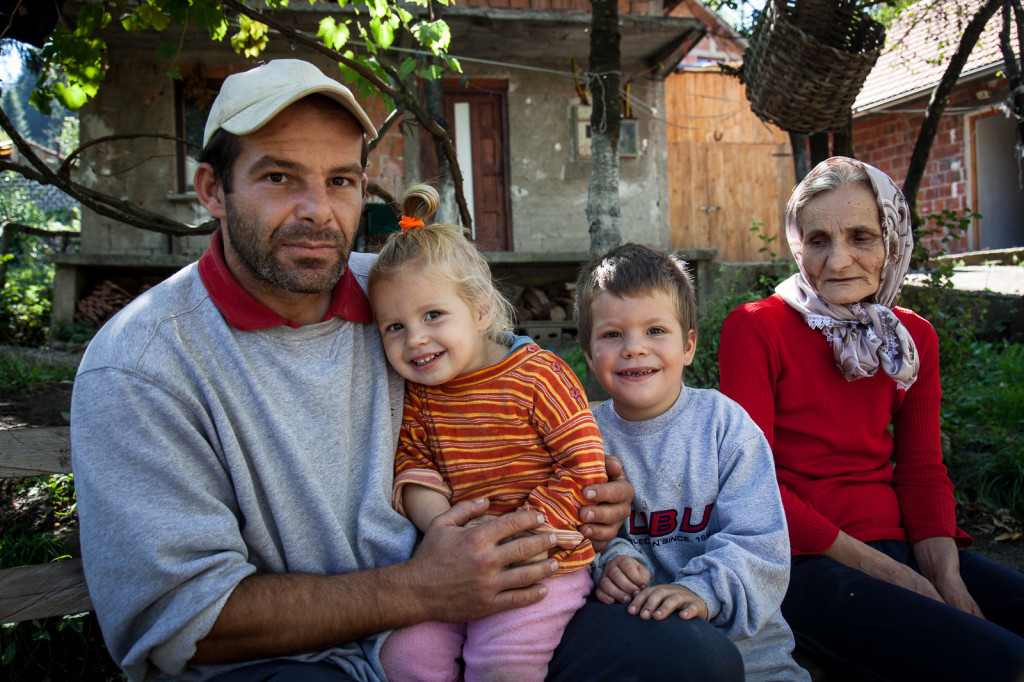
But it is not the physical wounds that haunt him most: Ibrahim wasn’t alone in the woods that day.
“Tarik was only 6 years old,” the father says, his eyes fixed on the ground. It was the boy who triggered the mine unintentionally, by stepping on a large tree branch. It only took a split second. An explosion, a loud sound, and then the father and son fell to the ground. Though seriously injured himself, Ibrahim did everything possible to bring his son Tarik to the hospital. “I heaved the boy’s body and walked through the forest as fast as I could,” he says with a trembling voice. When they reached the street a randomly passing neighbor stopped with his car. But it was already too late. Tarik was already dead. A piece of shrapnel had pierced the boy’s heart. He bled to death in his father’s arms.
Tarik’s story is demonstrative of the lingering effects of the conflict in Bosnia and Herzegovina, two decades after the three-year civil war’s end. The Bosnia & Herzegovina Mine Action Center (BH MAC) estimates that some 120,000 are still buried along the former front lines. Since the signing of the Dayton Peace Agreement and the subsequent cessation of armed conflict, more than 1,700 people have been involved in landmine accidents. Nearly 600 of them were killed, and the rest were injured, some seriously. In many cases, one or more limbs had to be amputated.
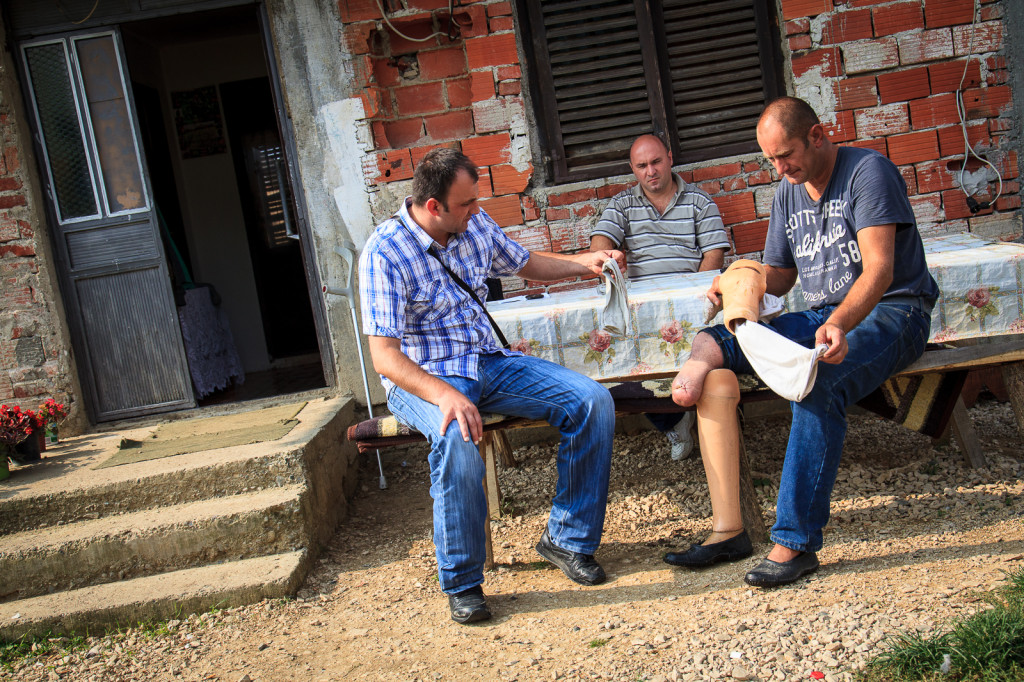
For the clearing of the remaining mines, the already crisis-stricken country needs about 40 million euros per year, according to Sasa Obradovic from BH MAC. The country’s original goal, to be cleared of mines by 2009, had to be postponed by a decade. Some experts say that even this date seems utopian. The country doesn’t lack professionals or the necessary technical equipment, only financial resources. So far, clearing has mostly focused on urban areas where danger had been the highest.
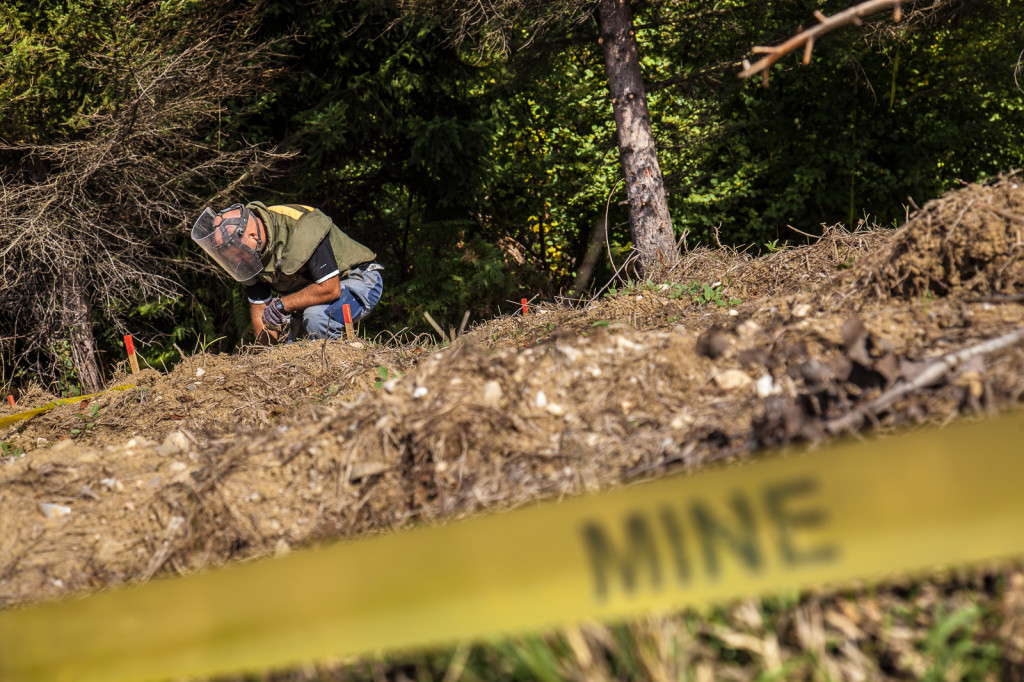
Bosnia’s remote regions have gone largely ignored. Although most minefields are marked, accidents happen anyway. In January 2014 alone, ten people were involved in landmine accidents, including a ten-year old boy who died in an explosion. Children like Tarik continue to become victims of a war that ended long before they were born.
But what is it that drives people in remote areas of Bosnia into the woods, despite the immense danger posed by landmines?
“It’s pure poverty,” says Amir Mujanovic, managing director of the Landmine Survivors Initiative (LSI). The NGO has made it its mission to assist survivors of mine accidents and their families financially and psychologically, beginning with the initial tragedy and continuing through their reintegration into society.
Employees of the multiethnic organization, which includes people who themselves have been wounded by landmines, form an active network throughout Bosnia, and are often the only voice for the affected and their communities. Above all, they encourage more demining in impoverished areas of the country.

“It’s not enough to set up red warning signs with skulls in front of each forest and hope that people will walk in a big circle to avoid the danger area,” Mujanovic says. “If people want to survive in the country’s remote areas, then they often have no other choice but to enter the forest and search for firewood, fruits, or scrap metal.”
Just how much some people are dependent on the surrounding forest, and how real the resulting risk is, is evident in the stories of people like Razija Alijc.
“For us, gathering wood and fruits in the forest has always been our only livelihood,” the 54-year old woman from Rijeka Lukavica, in the administrative area of Doboj, explains. Job opportunities are scarce. Apart from some agricultural activities, people in the region live mostly from gathering and selling firewood. And in order to survive the long and cold winters, it has always been necessary to create reserves of firewood throughout the summer months. “Whoever was busy in the summer, did not freeze in the winter,” the mother of three recalls. “Life was hard but we were able to come to terms with the situation.”
But in the early 1990s, the war broke out and everything changed. The former home was suddenly on the frontlines and the family had to flee. When they returned, a huge minefield surrounded their house. It wasn’t long before tragedy struck.
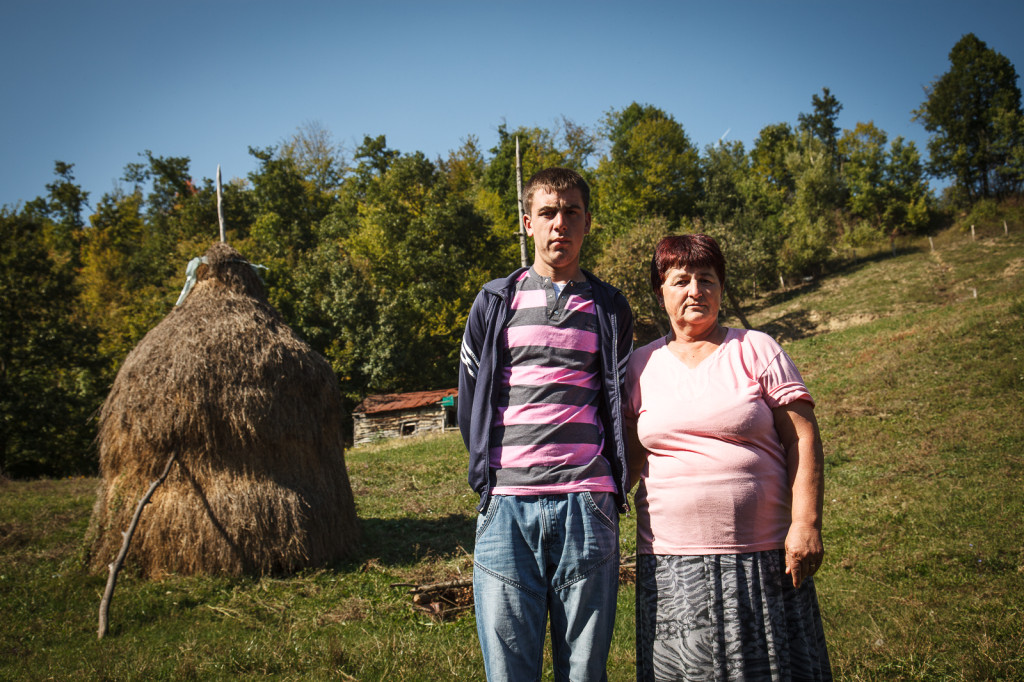
“Nedzad was the first,” Razija says in an almost resigned voice, as she begins her chronology of the family’s tragedy. Her son was 19 when he died in the forest area adjacent to their home in 1996, shortly after the war ended. He was killed when he stepped on a mine while gathering wood. Less than two years later, another explosion near the family home killed Razija’s husband. With folded arms she sits beside Ruzmir, her youngest son. She seems calm as she recollects the tragic events.
Then she begins to speak again, and her words are almost incomprehensible: “Two years ago, the explosion was so loud that I heard it in the kitchen.” Yusuf, her second son, and his brother-in-law, were killed instantaneously. Razija is silent, as if everything that needed to be said has been said.
Even the 19-year old Ruzmir, Razija’s only living son, is quiet for a minute. Then he begins to speak. He turns to the side, seemingly embarrassed, as he says softly: “I also go into the woods, one has to provide sustenance for the family.”
It’s tragedies like these that drive Amir Mujanovic and his ambitious team to continue their work, offering alternative livelihoods to people affected by landmines. “Unfortunately, we are finding again and again that victims of landmines were previously involved in an incident,” says Mujanović.
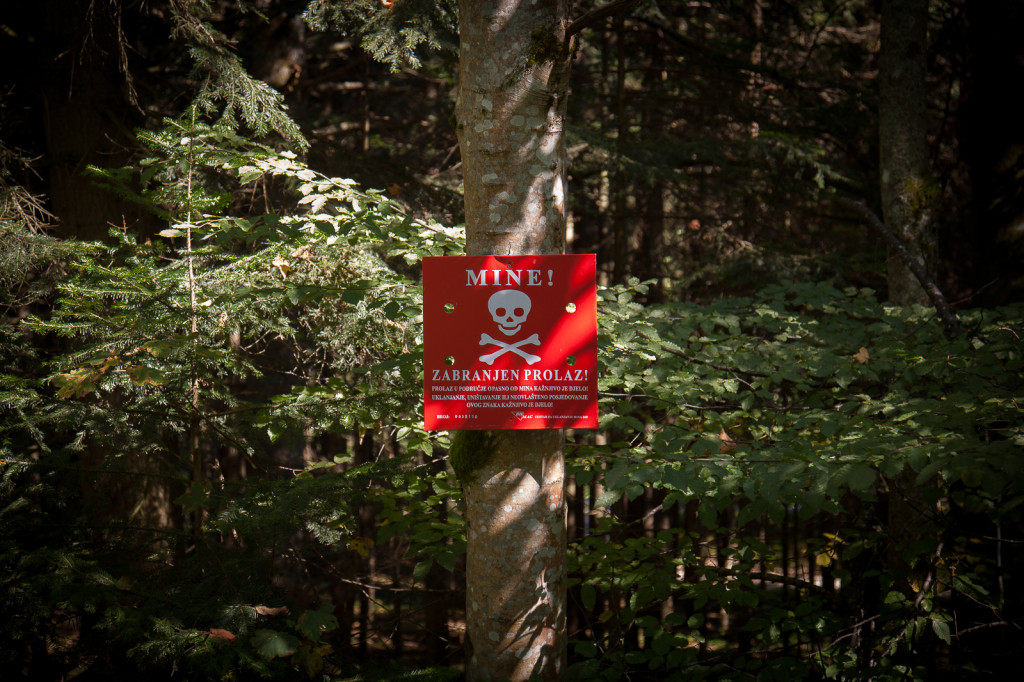
It’s also a fact that several generations of one family are often harmed in different accidents.
This is precisely what happened in the family of little Tarik, who was killed last year. Adilja Bijelic, the boy’s grandmother, recalls how she lost her husband Fehim in a mine explosion in 1996. “When I found out that my son Ibrahim was severely injured and that my grandson Tarik was dead, everything came up again,” the 62-year-old woman says.
The sadness in her eyes seems to have given way to pure resignation. “After the death of my husband, I never thought of that happening again. Who would have guessed that after 20 years the mines still lie buried in the woods? We have been promised at that time that we can live safely again soon. But the world has forgotten us.”
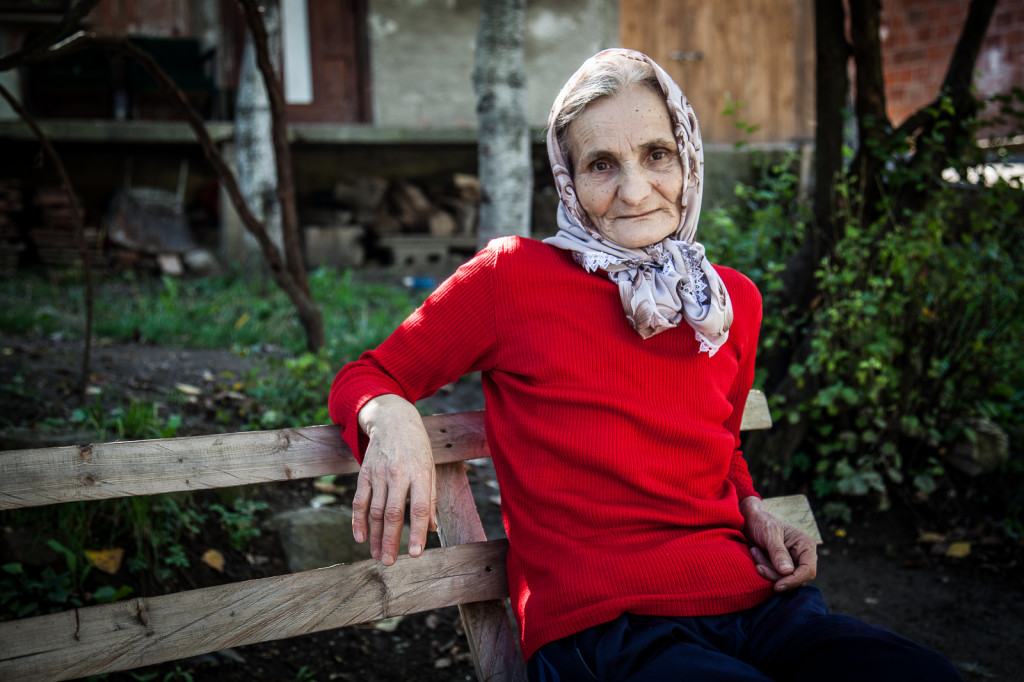
The day after Tarik’s death Amir Mujanović of the Landmine Survivors Initiative visited the Bijelic family and promised to do something.
A few weeks later, the NGO was able to give the family a small tractor with a trailer. Ibrahim smiles when he speaks of this gift, which had been granted with the financial support of UNDP (United Nations Development Programme) and Norwegian Aid.
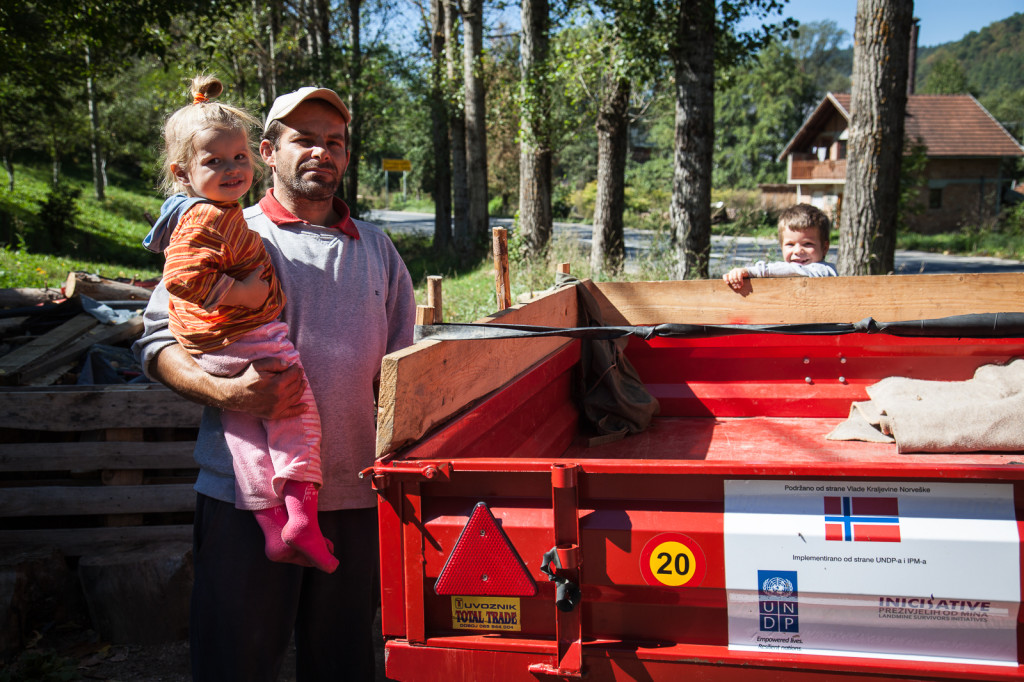
“How else could I feed my family,” the grieving father says. Through the use of agricultural equipment, Ibrahim can now search for firewood in more secure areas far from the former frontlines, and then sell it in his neighborhood.
Without the help of the NGO, the Bijelic’s would be at a far greater risk, and perhaps Ibrahim would eventually have to ask himself if he didn’t have to go into the woods again after all: The family is poor, and has no access to running water. After the war, everything had to be rebuilt. Ibrahim has three small children for whom he must provide. The youngest is now just a year old.
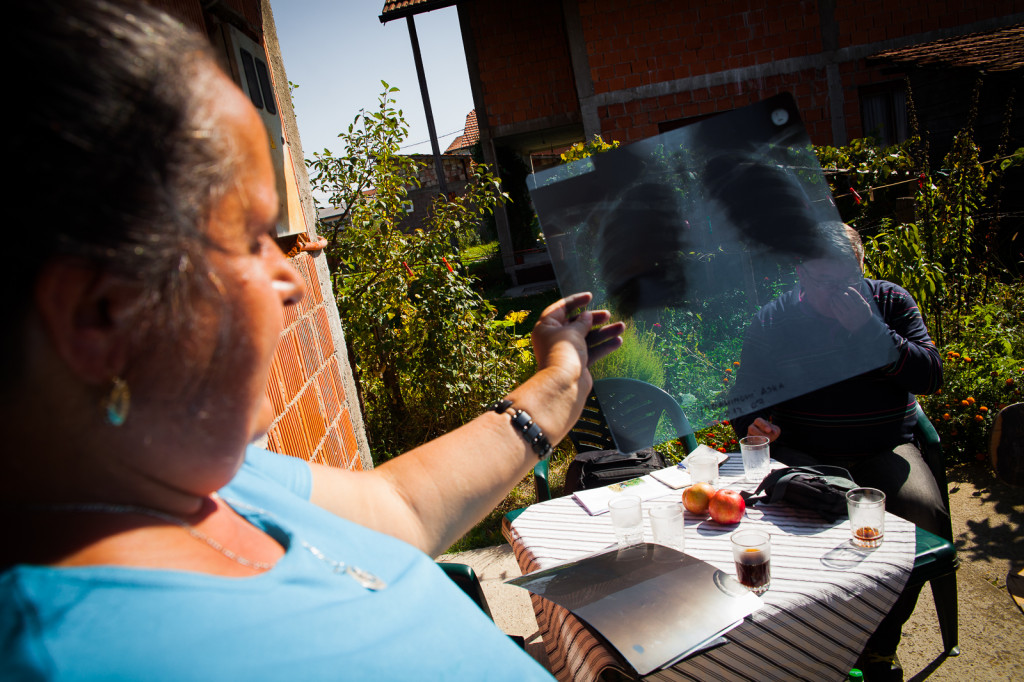
Amir Mujanović is satisfied with the help. “It’s the least we need to do when people are harmed by these remnants of war,” he says. Who receives what type of support varies from case to case. Women are often supported with provision of a greenhouse so that they can earn a living form the cultivated vegetables. Men often receive agricultural equipment so that they can take care of their land or do small transports.
The NGO tries to avoid providing monetary assistance alone. “We want that the people can do a regulated activity and that they are able to take care of their family on their own and independently,” Mujanovic says.
In the village Zivinice near Tuzla, Ajka Ibrahimovic presents several baskets full of vegetables from the latest harvest from her greenhouse. She looks proud. Until recently, the 50-year-old, who was severely injured when a cluster bomb exploded, was financially dependent on friends and relatives.
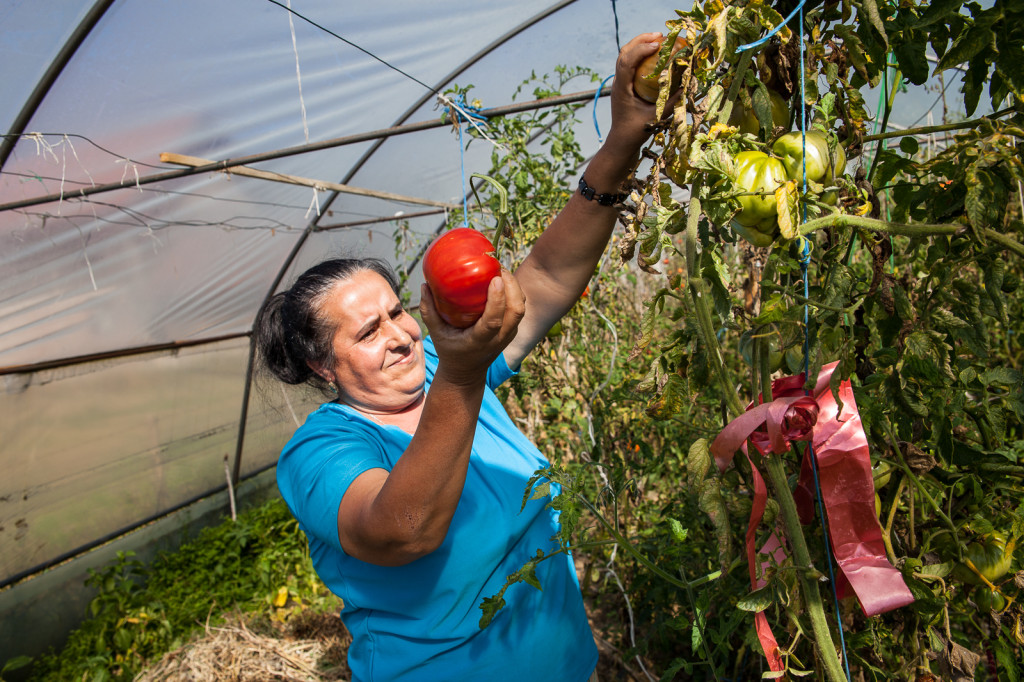
After the war she was classified as a 20 percent disabled veteran, and received a pension of less than 50 euros per month.
About two years ago, she met a member of the initiative. After her case was evaluated by the organization, it was decided that Ajka would be provided with a greenhouse. The approximately 1,000-euro investment seems to have paid off: within a short period of time, Ajka has established herself as a successful small business owner and now sells her harvest to people in her village. Additional support hasn’t been necessary.
“Of course it’s not always that easy,” Amir Mujanović says. “In the case of Ibrahim, a greenhouse would have been pointless. We had to ensure that he was mobile and did not have to go to collect wood in the surrounding forests.”
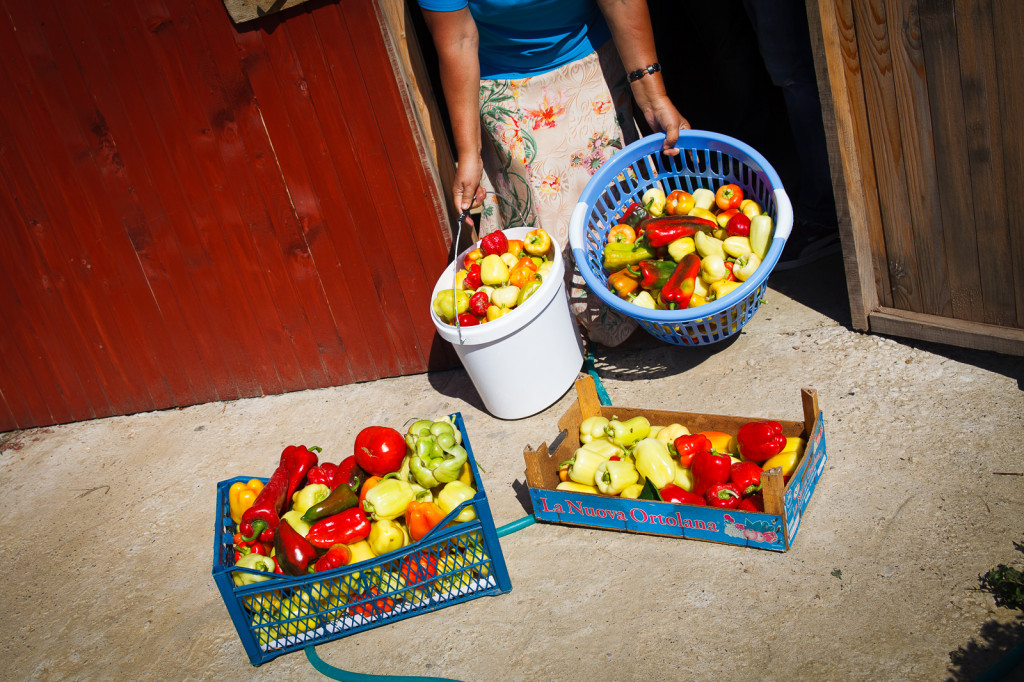
To date, the NGO has helped nearly 3,000 people affected by landmines cope in various ways.
The NGO director explains the various relief efforts with enthusiasm, before his mood appears to darken again. With a furrowed brow and a serious tone, he offers a final statement: “What we really need to do is to clear the entire country of landmines. As long as a single mine is left in Bosnia, as long as a single person is still in danger, our work is not done yet. We need to get our country back.”
Goran Stanusic is constantly working to implement this vision. In the town of Visoko, the 35-year old and his colleagues from the Bosnian Mine Action Center (BH MAC) are demining an area located next to several inhabited homes. Goran scans the ground, inch by inch, with his metal detector. The activity is tiresome; the men have to work alone and within earshot of each other. Every 30 minutes, after he’s scanned about five square feet of ground, Goran takes a short break.
Sometimes the detector signals trouble with a distinct sound, indicating that something metallic is in the earth below.
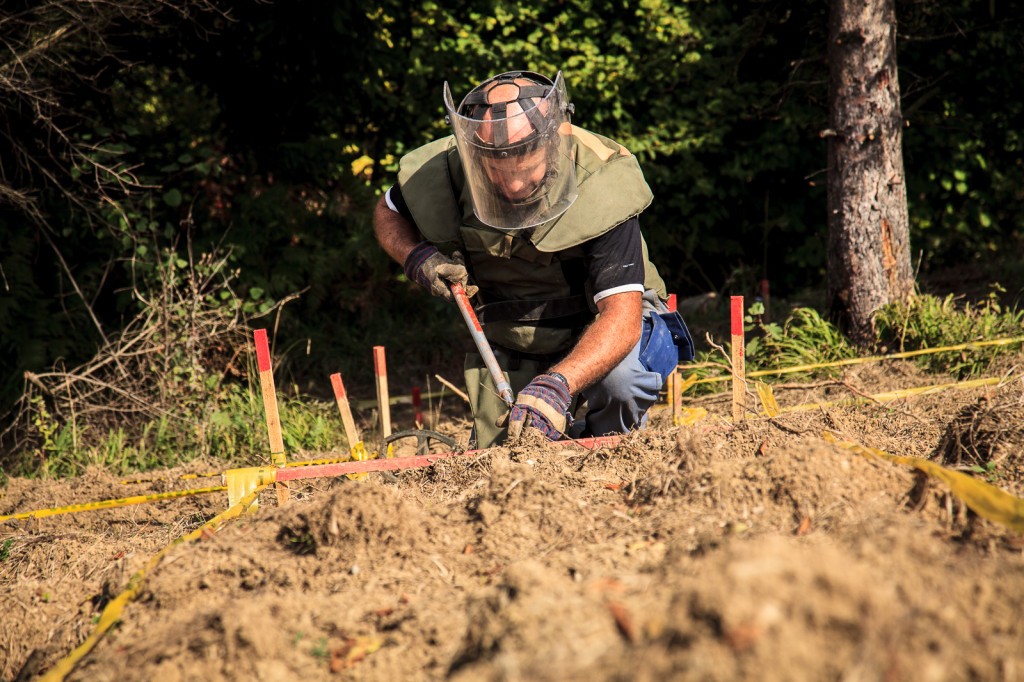
“In such a situation it is important to follow a strict protocol,” Goran says. It is essential that one not react too hastily or overlook something. The earth in Visoko is sneaky. Again and again the detectors seem to go crazy and caution risk even though there is none.
“The earth is very metallic,” Goran explains. The soil is contaminated with scrap metal and old cartridges. Since these are also metallic, Goran cannot ascertain with any clarity what lies buried in the ground.
“Patience is necessary for survival,” he says. As a professional, he knows: “If you do not adhere to the protocol, you can be dead the next moment or spend the rest of your life without limbs.”
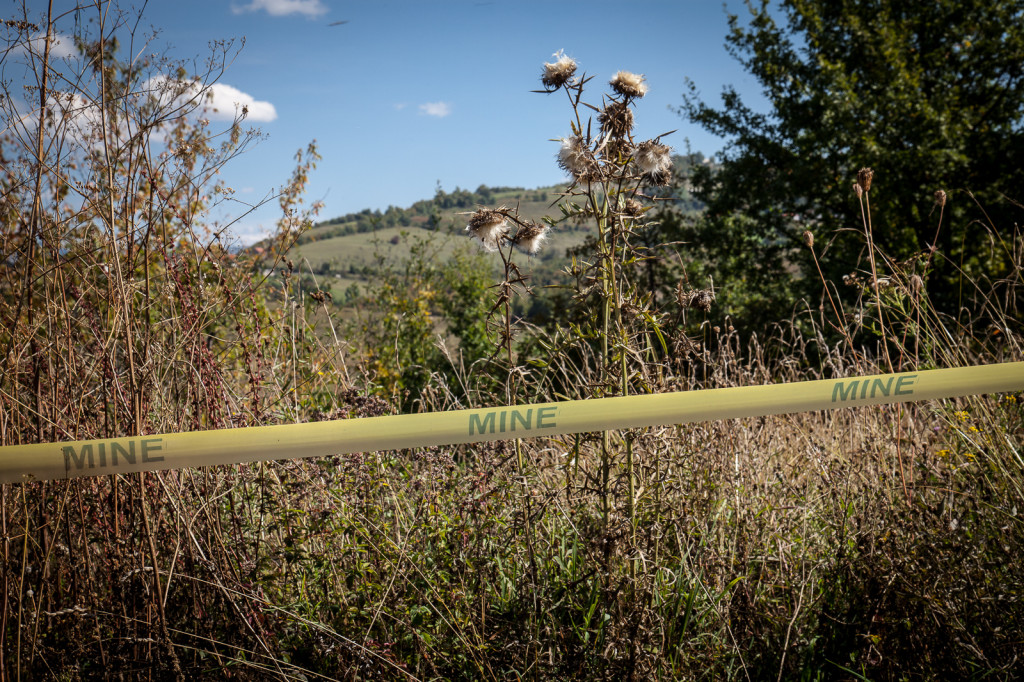
Statistics show just how dangerous the job is. Since the end of the war, 50 of Goran’s colleagues have lost their lives in Bosnia, and nearly 120 have been seriously injured.
Those in charge take the risk of working in the vicinity of a minefield very seriously. Every visitor must comply with a specific procedure: The first question asked is not name, but blood type. “In an emergency, everything has to happen very quickly, otherwise you have no chance.”
Despite the many risks, Goran and his colleagues like their job and are proud to do something so meaningful. If a piece of land is completely cleared, the yellow safety strips with the warning words “MINE” are removed, and the landowner receives certification that the area has been cleared by a measure of 99.6 percent. Safety is ever 100 percent assured.
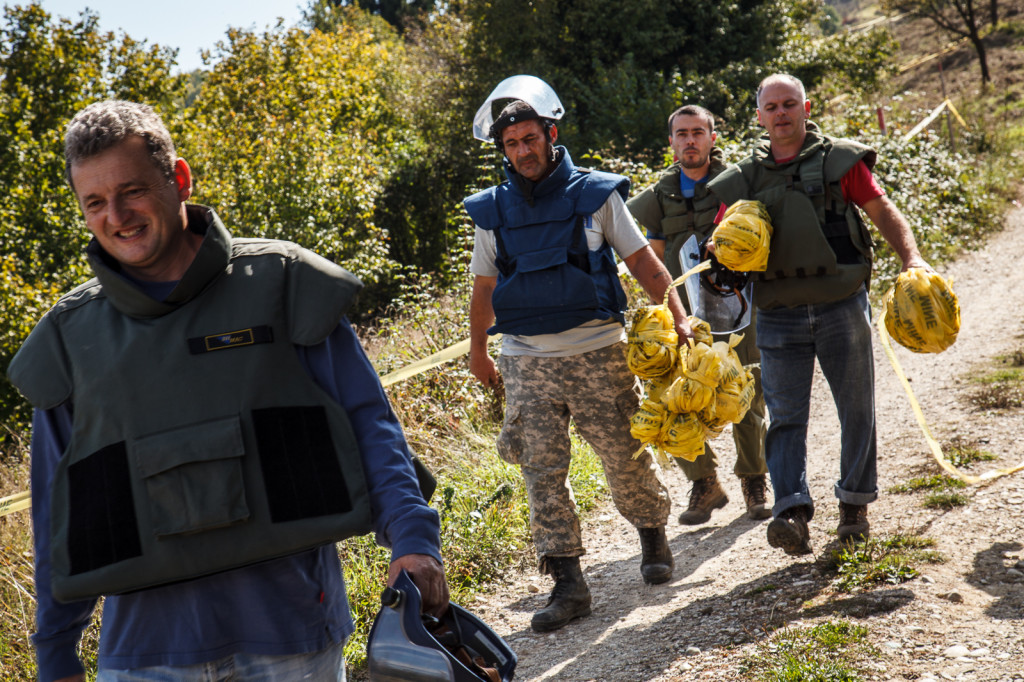
Shrinking forested areas pose another danger, as mines can “wander” due to rainfall – or catastrophic flooding — and suddenly appear in a new location where there were none before. As intensely as the BH MAC is working on demining the country, new warning signs sometimes must be put up in Bosnia. This is especially true following an unexpected accident, as in the case of Tarik. After his death, the familiar red signs with white skulls were placed around the forest. Whether this will prevent others from entering the woods or not is questionable. Because only one thing is for sure in much of rural Bosnia: The next winter is certain to come soon.

